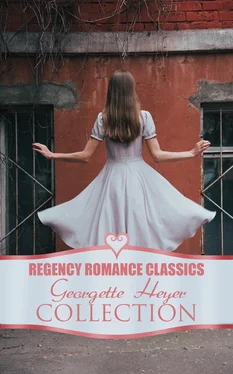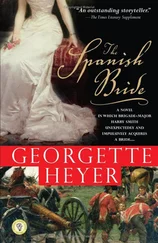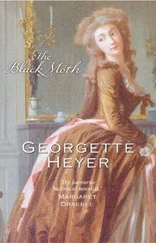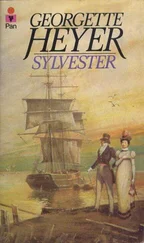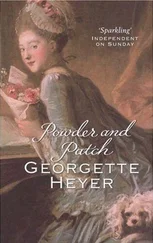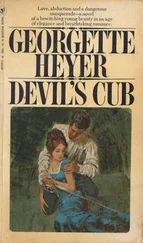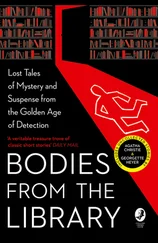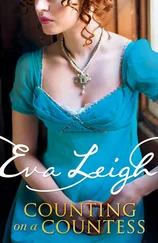"Numskull! D'ye think I want a list of his clothes? Show him out, the swarthy rogue! Show him out!"
Moggat picked up the nightcap, and smoothed it sadly.
"The gentleman seems anxious to see you, sir."
"Ay! Trying to dun me, the rascal! Don't I know it! Blustering and—"
"No, sir," said Moggat firmly. "I could not truthfully say that the gentleman blustered. Indeed, sir, if I may say so, I think him a singularly quiet, cool gentleman. Very soft-spoken, sir—oh, very soft-spoken!"
"Take him away!" shouted Tom. "I tell you I'll not be pestered at this hour! I might be asleep, damme! Tell the fellow to come again at a godly time—not at dawn! Now, don't try to argue, Moggat! I tell you, if it were my brother himself, I'd not see him!"
Moggat bowed again.
"I will hinform the gentleman, sir."
When the door closed behind Moggat, Tom leaned back in his chair and picked up one of his letters. Not five minutes later the door creaked again. Tom turned, to find Moggat at his elbow.
"Eh? What d'ye want?"
"Hif you please, sir, the gentleman says as how he is your brother," said Moggat gently.
Tom jumped as though he had been shot.
"What? My brother? What d'ye mean? My brother?"
"Sir Maurice, sir."
Up flew Tom, catching at his wig and cramming it on his head all awry.
"Thunder an' turf! Maurry! Here, you raving wooden-pate! How dare you leave my brother downstairs? How dare you, I say?" He wrapped himself more tightly in his robe than ever, and dashed headlong out of the room, down the stairs to where Maurice awaited him.
Sir Maurice was standing by the window in the library, drumming his fingers on the sill. At his brother's tempestuous entrance he turned and bowed.
"A nice welcome you give me, Tom! 'Tell him to come again at a godly time—I'd not see him if 'twere my brother himself,' forsooth!"
Thomas hopped across the room and seized both Maurice's long, thin hands in his plump, chubby ones.
"My dear Maurry! My dear old fellow! I'd no notion 'twas you! My dolt of a lackey—but there! When did you arrive in England?"
"A week ago. I have been at the Pride."
"A week? What a plague d'ye mean by not coming to me till now, ye rogue?" As he spoke, Tom thrust Maurice into a chair, and himself sat down opposite him, beaming with pleasure.
Maurice leaned back, crossing his legs. A little smile flickered across his mouth, but his eyes were solemn as he answered.
"I had first to see my wife installed in her new home," he said.
For a moment Tom stared at him.
"Wife? Tare an' 'ouns, ye don't waste your time! Where and when did you marry the lady?"
"Three weeks ago, at Paris. Now I have come home to fulfil the last part of the Jettan adage."
"God ha' mercy!" ejaculated Thomas. "Not a staid old age, lad! Not you?"
"Something like it," nodded Maurice. "Wait till you have seen my wife!"
"Ay, I'm waiting," said Tom. "What's to do now, then? The country squire, and half a dozen children?"
The grey eyes twinkled.
"Tom, I'll thank you not to be so coarse."
"Coarse? Coarse? Gad, Maurice, what's come over you?"
"I am a married man," replied Maurice. "As such I have—er—learned to guard my tongue. My wife—"
"Maurry, couldn't ye call the lady by her name?" begged Tom. "Faith, I can't bear those two words so often, proud though ye may be of them."
Maurice flushed slightly and smiled.
"Maria, then. She is a very—sweet, delicate lady."
"Lord! I'd made up my mind you'd wed a bold, strapping wench with a saucy smile, Maurry!"
"I? Good God, no! My w—Maria is gentle, and meek, and—"
"Ay, ay, Maurry, I know!" hastily interrupted Thomas. "I must see her for myself, so don't spoil the surprise for me, there's a good fellow! Now have you breakfasted? No? Then come upstairs with me. Where's that rascal Moggat? Moggat! Moggat! Ah, there you are! Go and prepare breakfast at once, man! And bring some more chocolate to my room." He wrapped the voluminous robe about him once more, and, seizing his brother by the arm, led him forth to the staircase.
Thus it was that Maurice Jettan brought home his bride. She was a gentle lady, with a sweet disposition; she adored her handsome husband, and duly presented him with a son, Philip. When the babe was shown to him, Tom discovered that he was a true Jettan, with all their characteristics. His father confessed that he saw no resemblance either to himself or to anyone, but he was nevertheless gratified by his brother's remarks. Tom chuckled mightily and prophesied that young Philip would prove himself a Jettan in more ways than one. He hinted at a youth which should surpass his father's in brilliancy, and Maurice smiled, looking proudly down at the red, crumpled face.
"And," concluded Tom, "he'll have a papa who can advise him in all matters of fashion better than any man I know. Why, Maurice, you will show him the fashionable world! You must take care you do not stagnate here. You must not fall out of Society."
Maurice was still smiling down at his offspring.
"No. I must not fall out, Tom. The youngster will need me later on."
For five years he continued to take his place in London Society, but he found that the desire for excitement and gaiety was growing less and less within him. The death of Maria gave this desire the coup de grâce . Maurice took his small son down to the Pride as soon as he had recovered from the first shock of bereavement, and after that for some years he rarely visited London, except sometimes to see his brother or his tailor. Then he seemed to grow restless again, and started to spend more time with Tom. Bit by bit he re-entered the world he had quitted, yet never did he give himself up to it as once he had done. The Pride seemed to call him, and little Philip held his heart with both hands. Thereafter he spent his time between London and the Pride. When he felt restless, he packed his bags and flitted either to London or to Paris; when the restlessness had passed, back he came to the Pride, there to spend two or three peaceful months.
When Philip was eighteen, he took him to London. Philip was very thoroughly bored. Sir Maurice concluded that he was too young to be introduced into Society, and he sent him back to the country, thinking that in two or three years' time the lad would be only too anxious to leave it.
But the years slipped by, and Philip showed no desire to follow in his father's footsteps. He refused to go on the Grand Tour; he cared nothing for Dress or Fashionable Manners; he despised the life of Courts; he preferred to remain in the country, usurping, to a great extent, his father's position as squire. He was now some twenty-three years old, tall and handsome, but, as his father told his uncle, "an unpolished cub."
Two
In Which Is Presented Mistress Cleone Charteris
Table of Contents
A while back I spoke of three gentlemen who built their homes round Little Fittledean. Of one I said but little, of the second I spoke at length and to the tune of one whole chapter. It now behoves me to mention the third gentleman, who chose his site on the outskirts of the village, some two miles from Jettan's Pride, and to the east. To reach it you must walk along the main street until the cottages grow sparse and yet more sparse, and the cobblestones and pavement cease altogether. The street turns then into a lane with trees flanking it and grass growing to the sides. A few steps further, and the moss-covered roof of Sharley House peeps above a high holly hedge which screens the place from the passer-by.
There lived Mr. Charteris, and his father and grandfather before him. Mr. Charteris was the happy possessor of a wife and a daughter. It is with the daughter that I am most concerned.
Читать дальше
